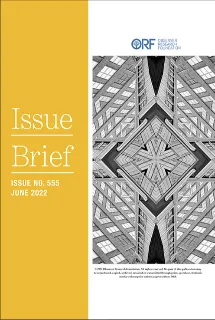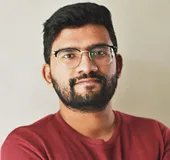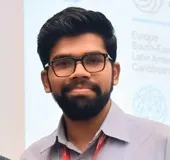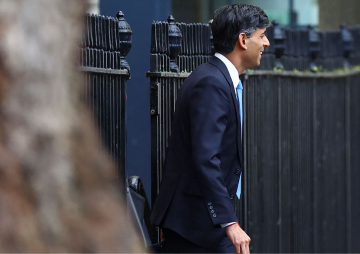Introduction
Russia’s invasion of Ukraine[1] under the pretext of a ‘special military operation’ goes against the rule-based international legal order established under the aegis of the United Nations (UN) after the Second World War. The unilateral and unprovoked use of force by Russia constitutes aggression and violates Article 2(4) of the UN Charter, despite the various justifications offered by Russia, such as self-defence or humanitarian intervention. The UN General Assembly has condemned the invasion by adopting the ‘Uniting for Peace’ resolution—which enables the UN to overcome any veto against intervention by any of the five permanent members of the Security Council (in this case, Russia)—for the first time in the last 40 years. India abstained from the vote. Since 24 February 2022, when the invasion started, the world has been witnessing an escalation of conflict and the mass exodus of Ukrainian people.
Hundreds of people across the world have responded to Ukrainian President Volodymyr Zelensky’s invitation to foreigners[2] to join the resistance, through the International Legion of Territorial Defence (ILTD), and fight the Russians. According to reports, an Indian national based in Ukraine has joined the ILTD[3] and over 500 others have submitted applications to do so.[4] This brief will focus on the Indian legal framework governing the questions of prosecution and citizenship of foreign fighters (FFs) in India, while also examining this incipient trend.
Legal Response to Foreign Fighters
India has no legislation governing FFs. So far, the Indian government’s response to FFs has been through its legal framework on counterterrorism. The Unlawful Activities (Prevention) Act (UAPA), 1967, criminalises membership, financing, recruitment, and harbouring of terrorist/terror organisations. Using the UAPA, the National Investigation Agency (NIA) has charged multiple individuals[5] who joined, were preparing to join, or expressed allegiance to, foreign armies—in particular, the Islamic State (ISIS).
Case studies show that India has uniformly relied on the penal provisions related to terrorist acts in the UAPA—especially Section 16 (committing terror acts), Section 18 (conspiracy), Section 18B (recruitment for terrorism), Section 20 (membership of a terrorist gang), Section 38 (membership of a terrorist organisation) and Section 39 (support to a terrorist organisation)—to prosecute FFs and their sympathisers. While prosecuting, these individuals have been classified as ‘foreign terrorist fighters’ (FTFs), and charged for their association with a declared terrorist organisation that is also banned in the country (Schedule I of UAPA: ‘Terrorist Organisation’)
The UN Security Council’s Resolution No. 2178 of 2014 defines FTFs as “individuals who travel to a state other than their state of residence or nationality for the purpose of perpetration, planning, or preparation of, or participation in, terrorist acts, or the providing or receiving of terrorist training, including in connection with armed conflict”. Indian FFs or FTFs can be grouped into four broad categories: the sympathisers, the prospective participants, the returnees, and the extradited individuals.[a]
The first category consists of those who allegedly circulated propaganda or provided material support to foreign wars. On 15 June 2021, for instance, the NIA charge-sheeted one Syed Ali under the Indian Penal Code (IPC) and the UAPA for his alleged involvement in procuring SIM cards using fraudulent IDs and supplying them to ISIS members.[6] Arrests in this category are usually based on disclosures made to the NIA by active participants who have already been detained. For example, Ahamed Abdul Cader and Irfan Nasir were charge-sheeted for allegedly glorifying ISIS and recruiting members, using the disclosure statement of one Abdul Rahman. Rahman, who had joined ISIS, planned to travel to Syria, but was arrested before he could leave the country.[7]
Rahman falls in the second category—those the NIA arrested before they could travel to join a foreign terrorist organisation, and who are charged with preparing and planning for such a trip. They include deported individuals such as Shajahan, who was arrested at the New Delhi International Airport after Turkish authorities caught him trying to cross the Turkey-Syria border and sent him back to India. He was convicted under both the IPC (Section 120B or criminal conspiracy) and the UAPA (Sections 18, 38 and 39) and sentenced to seven years in prison.[8]
In the third category are those who have voluntarily returned to India after having been FFs, be it with the assistance of Indian authorities or otherwise. One such individual was Subahani Haja Moideen, who left India for Istanbul, Turkey, and crossed over to Iraq with a group from Pakistan and Afghanistan. After witnessing the violence in Mosul, he decided to leave. When he said he wanted to quit, he was imprisoned by ISIS in Mosul, put on trial before an ISIS court, and incarcerated at Raqqa, Syria. For reasons unknown, he was later permitted to leave and return to Turkey. He approached the Indian Consulate in Istanbul to arrange for his return home without disclosing his history with ISIS. On his return to India, however, he was found in possession of documents establishing his travel to Syria, and earlier attempts to undertake terror attacks in India too, and was arrested by the NIA. The Special NIA Court sentenced him to life imprisonment under Section 120B of the IPC, and Sections 38 and 39 of the UAPA.[9]
In the fourth category are accused persons who have been extradited from some other country at India’s request for alleged terrorist activity. This was the case with Ayan Khan Salafi (aka Muhammadi Ayan, aka Al Wala Wal Bara) who was working in Saudi Arabia. On investigation, he was found to be the primary suspect in the Bengaluru Church Street blast case of December 2014 carried out by an organisation called Junood-ul-Khilafa-Fil-Hind. He was duly deported by the Saudis. He was arrested by the NIA in 2017 under Section 125 of the IPC (‘waging war against any Asiatic power in alliance with India’) and Sections 18, 18B, 38, and 39 of the UAPA.[10]
‘War Crimes’ Vs. ‘Grave Breaches’
While India has no specific domestic law criminalising war crimes, it has passed the Geneva Conventions Act, 1960, which criminalises ‘grave breaches’ of any of the four Geneva Conventions, which India ratified when they were enacted in 1949. There is, however, a subtle difference between ‘war crimes’ and ‘grave breaches’ under international law. The former concerns actions (and omissions) that violate international humanitarian law and are punishable under international criminal law; the latter relates to obligations of UN member states to ‘domesticate serious violations of the Geneva Conventions’ and provide for their enforcement under domestic criminal law. Thus, the Geneva Conventions did not provide for international responsibility for ‘grave breaches’ and left it to UN member states to criminalise them under their own laws. The rationale for this is the principle of aut dedere aut judicare—i.e., prosecute or extradite.
India’s Geneva Conventions Act, 1960, allows for the prosecution[b] of “any person within or without India [who] commits or attempts to commit or abets or procures the commission by any other person of, a grave breach of any of the Conventions”.[11] The Act has no geographic or nationality restrictions—anyone can be prosecuted irrespective of whether they are an Indian national or not, or whether the ‘grave breach’ was committed within India or outside.[12] However, such prosecution can only be initiated by the Indian government through its representative.[13] A cursory search for relevant case law shows that no prosecution has yet taken place in India under the Geneva Conventions Act.
Further, the IPC has ‘extraterritorial application’ in special cases,[c] and it can apply to certain kinds of crimes committed outside the country. Thus Section 125 (‘waging war against any Asiatic power in alliance with the government of India’) and Section 126 (‘commissioning of depredation or plunder on territories of states at peace with the government of India’) of the IPC come close to providing substantive criminal regulation to deal with Indian FFs and FTFs. Again, Section 127 of the IPC enables prosecution of those who ‘knowingly receive any property obtained’ through the crimes described in Sections 125 and 126. These were provisions included in British-drafted IPC (in 1860) so that Indian nationalists could be penalised for anti-crown activity on foreign land; independent India has retained them.
Under Section 15 of the UAPA too, the government has the power to proceed against those committing a ‘terrorist activity’ ‘in India or in any foreign country”. If the government wants to, it can use these laws instead of the Geneva Conventions Act against FFs (or FTFs). The fundamental difference between international humanitarian law as contained in the Geneva Conventions, and India’s laws relating to terrorism, is that the former does not prohibit certain kinds of violent activities in the pursuit of military objectives whereas in Indian law, all such acts are criminalised and prohibited.
Citizenship and Statelessness
On the question of citizenship, unlike in many countries, Indian law does not allow depriving an individual of citizenship for voluntarily serving in a foreign army. Section 10 of the Indian Citizenship Act, 1955, provides for the deprivation of citizenship of only those individuals who obtained it through naturalisation or registration (i.e., not those who were ‘born Indian’) and only if the authorities are satisfied that the presence of such a person in India would go against the public good. The relevant ground could be Section 10(b), which empowers the government to deprive an individual of citizenship if their speech or actions are found ‘disloyal or disaffected’ to the Indian Constitution. ‘Disloyal’ or ‘disaffected’ must be read not as the mere absence of love but as positive aversion.[14]
It is improbable that mere participation in a foreign conflict as a member of the armed forces of another state not at war with India can constitute disloyalty or disaffection under the law. However, if the government forms such an opinion, it must be remembered that the deprivation of Indian nationality would render the individual effectively stateless,[d] because the Indian Constitution only provides for single citizenship. If an individual voluntarily acquires dual citizenship, their Indian citizenship is automatically terminated.
Further, taking away an individual’s nationality as a national security measure must be consistent with international law. While every state has the sovereign right to determine who shall be its citizens, this must be consistent with international law.[15] Depriving an individual of citizenship must cumulatively satisfy four requirements: (a) legitimate purpose; (b) the legal framework; (c) the notion of proportionate justice; and (d) consistency with procedural safeguards.[16] In the absence of a legal framework facilitating the termination of citizenship, such action by the government would run afoul of international law obligations.[17] Similarly, the government can revoke or impound a passport “in the interests of the sovereignty and integrity of India, the security of India, friendly relations of India with any foreign country, or in the interests of the general public.”[18] However, doing so when the concerned individual is outside the country may constitute an indirect deprivation of nationality.
India and Foreign Fighters
There have been few FFs from India so far. The Soviet-Afghan war (1979-1989)[19] stoked a wave of jihad[20]in Asia and drew thousands[21] to its cause, especially from among young Muslims in South Asia, but only a few hundred joined from India. This exception[22] was noted even at the time. Later too, when ISIS was formed and attracted thousands of Muslims globally, few Indians responded to its call. Though there is no comprehensive publicly available documentation on Indian FFs, they (including sympathisers and propagandists) have been estimated to be between 108 to 200 persons.[23] Some estimate the number to be lower, around 100[24]-150[25]. For many years, the focus of Indian authorities such as the NIA on Indian nationals joining foreign wars was limited to West Asia. The net has since been widened, with the realisation that FFs are not limited to any geography.
The 26th Report of the UN’s Analytical Support and Sanctions Monitoring Team on the ISIS and Al-Qaida (2020),[26] claimed that ISIS’s Indian initiative—called Hind Wilayah—has between 180-200 members, with a significant number coming from two states, Karnataka and Kerala. However, the report was rejected by India’s Minister of State for Home Affairs, G. Kishan Reddy, as “factually not correct”.[27] The home ministry has maintained that ISIS’s activities in India have been mapped across 11 states and one union territory—Kerala, Karnataka, Andhra Pradesh, Telangana, Maharashtra, Tamil Nadu, West Bengal, Rajasthan, Bihar, Uttar Pradesh, Madhya Pradesh, and Jammu & Kashmir.[28] The number of cases related to this filed by the NIA annually from 2014 to 2020 is as follows:
Table 1: Number of cases, by year
| Year |
Number of Cases |
| 2020 |
12 |
| 2018 |
25 |
| 2017 |
20 |
| 2016 |
62 |
| 2015 |
5 |
| 2014 |
9 |
Note: Data for 2019 is unavailable.
Source: Tracking ISIS’ Influence in India[29]
Table 2: Number of cases, by status
| Year |
Arrested |
Chargesheet |
Under Investigation |
Unknown |
| 2020 |
2 |
9 |
0 |
1 |
| 2018 |
13 |
1 |
11 |
0 |
| 2017 |
5 |
0 |
7 |
10 |
| 2016 |
5 |
0 |
0 |
57 |
| 2015 |
0 |
0 |
0 |
5 |
| 2014 |
0 |
1 |
4 |
4 |
Note: Data for 2019 is unavailable.
Note: Chargesheet under Indian criminal law means a final report prepared by investigative agencies of charges that they are seeking to prove against the accused. Unknown includes absconding, reported dead by ISIS, credible information of having joined ISIS or under surveillance.
Source: Tracking ISIS’ Influence in India[30]
The following observations can be made after analysing the cases filed by the NIA over the years:
- The number of FFs being investigated by the NIA has risen from four in 2014 to 11 in 2018.
- The NIA filed charge-sheets[31] against one individual in 2014, and nine more in 2020.
- The number of arrests in ISIS-related cases increased from five in 2016 to 13 in 2018.
- The number of cases against ‘unknown persons’ peaked in 2016, with 57 such people being charged for alleged contribution to and participation in ISIS activities. They are all either absconding, and believed to be outside India, or dead.
As for Ukraine’s ILTD, the single individual who has joined it has been identified as 21-year-old Sainikesh Ravichandran from Tamil Nadu.[32] Rejected twice during selections to the Indian Army, Ravichandran seems to have been motivated by a strong desire to join the military. Five hundred other Indians have also applied to join ILTD.
Earlier, in 2015, Ravi Singh, a Punjab-born Indian working in New Zealand, travelled to Moscow to join the Russian army, and thereafter to the Donbas region of Ukraine to fight on behalf of the separatists there.[33] A communist, he was part of the Essence of Time movement[34] in Moscow to “fight fascism and revive communism”, as he put it; Singh believed that people in Donbas, many of whom are ethnic Russians, were being oppressed by Ukraine’s “US-supported Nazis”. So too, in 2013, hundreds of Indian merchants[35] in Lebanon joined the conflict between the Palestine Liberation Organisation and the Phalangists in Beirut, on both sides.
In the case of Ravichandran, unlike the ISIS, neither the Ukrainian army nor the ILTD has been declared ‘unlawful’ by India. Nor is the ILTD listed as a terrorist organisation by the UN Security Council. So far, there has been no response from the Indian government on Indians applying to fight for the Ukrainian cause. However, a few years back, India had made it clear that no Indian was allowed to fight for a foreign cause. In an affidavit filed before the Delhi High Court in 2015,[36] in a matter related to ISIS foreign fighters, the Ministry of Home Affairs had stated: “No Indian can be allowed to go to a foreign country with an objective of taking part in the internal affairs of that country because it would adversely impact friendly relations with foreign countries, and allowing any Indian to go to another country to take part in a conflict (which amounts to taking part in terrorist activity) would lead to the allegation that the Indian government is promoting terrorism in other countries.”
Conclusion
Individuals who join or express a desire to join ILTD can be prosecuted in India on their return only if they have committed war crimes. As for Ravichandran, it is reported that he is willing to come back.[37] If true, India, through its embassy in Kyiv, must facilitate his return to the country. Abandoning him, as it did the wives of Indian FTFs detained in Afghanistan,[38] now under the control of the Taliban, would amount to abdicating its international legal duty to repatriate its citizenry from a conflict zone. On Ravichandran’s return, the government can decide its legal and policy response to FFs and if there is a need for prosecution. To do so, it will have to promulgate domestic war crimes legislation and move beyond ad-hoc decision-making.
Endnotes
[a] The information collected and studied includes case summaries and chargesheet copies made available through the NIA Twitter account.
[b] For the purposes of the Act, grave breaches include commission of any of the acts committed against persons or property protected by the Geneva Conventions and mentioned under Article 50 (First Geneva Convention), Article 51 (Second Geneva Convention), Article 130 (Third Geneva Convention), and Article 147 (Fourth Geneva Convention).
[c] These are cases where either an Indian national is involved, occur aboard an aircraft or a ship registered in India, or relate to cybercrime directed at Indian targets.
[d] Defined as “A person who is not considered as a national by any State under the operation of its law,” as per Article 1(1), 1954 Statelessness Convention.
[1] Paul Kirby, “Why has Russia invaded Ukraine and what does Putin want?”, BBC, May 9, 2022.
[2] Olga Voitovich in Lviv and Ivana Kottasova, “Ukraine’s Zelensky calls on “citizens of world” to join in fight against Russia”, CNN, February 27, 2022.
[3] Naveen Kumar, “Indian youth in Ukraine fighting Russian army”, Deccan Chronicle, March 9, 2022.
[4] Dinakar Peri, “Many Indians volunteer to join Ukraine Legion”, The Hindu, March 8, 2022.
[5] Kabir Taneja, “An Examination of India’s Policy Response to Foreign Fighters,” ORF Occasional Paper No. 333, September 2021, Observer Research Foundation.
[6] NIA (@NIA_India), “NIA chargesheets an ISIS terrorist in Chennai ISIS/ ‘Q’ Branch Case”, Tweet, June 15, 2021.
[7] NIA (@NIA_India), “NIA files chargesheet against two ISIS sympathisers in ISIS/ ISIL/Daesh Bengaluru case”, Tweet, April 01, 2021.
[8] Shajahan VL v. NIA, RC-12/2017/NIA/DLI.
[9] “NIA court finds Subhani Haja Moideen guilty of joining IS”, The Hindu, September 25, 2020.
[10] NIA (@NIA_India), “One deportee from Saudi Arabia has been arrested ISIS Delhi case”, Tweet, April 6, 2017.
[11] Section 3, Geneva Conventions Act, 1960.
[12] Section 4, Geneva Conventions Act, 1961.
[13] Section 17, Geneva Conventions Act, 1961.
[14]Kedar Nath Singh v. State of Bihar, 1962 SCR Supl. (2) 769.
[15]Nottebohm case (Liechtenstein v. Guatemala) (second phase) (1995), ICJ Reports 1955, p. 4.
[16] UN Human Rights Council, ’Human rights and arbitrary deprivation of nationality: Report of the Secretary-General’, A/HRC/25/28 (2013), para 4.
[17] Article 8(1), 1961 Reduction of Statelessness Convention; Article 15(2) UDHR.
[18] Indian Passport Act, Section 6.
[19] Alan Taylor, “The Soviet War in Afghanistan, 1979 – 1989”, The Atlantic, August 4, 2014.
[20] Euben, Roxanne L. “Killing (For) Politics: Jihad, Martyrdom, and Political Action.” Political Theory 30, no. 1 (2002): 4–35.
[21] Thomas F. Lynch III, Michael Bouffard, Kelsey King, and Graham Vickowski, The Return of Foreign Fighters to Central Asia: Implications for U.S. Counterterrorism Policy, Washington D.C., Center for Strategic Research, Institute for National Strategic Studies, National Defense University, 2016.
[22] Mohammed Sinan Siyech, “The Return of the Taliban: ‘Foreign Fighters’ and Other Threats to India’s Security,” ORF Issue Brief No. 515, January 2022, Observer Research Foundation.
[23] Kabir Taneja and Mohammed Sinan Siyech, “The Islamic State in India’s Kerala: A Primer”, ORF Occasional Paper No. 216, October 2019, Observer Research Foundation.
[24] Dr. Adil Rasheed, Why Fewer Indians Have Joined ISIS, New Delhi, Manohar Parrikar Institute for Defence Studies and Analyses, 2020.
[25] Kabir Taneja, Uncovering the Influence of ISIS in India, New Delhi, Observer Research Foundation, 2018.
[26] UNSC, S/2020/717, “Letter dated 16 July 2020 from the Chair of the Security Council Committee pursuant to resolutions 1267 (1999), 1989 (2011) and 2253 (2015) concerning Islamic State in Iraq and the Levant (Da’esh), Al-Qaida and associated individuals, groups, undertakings and entities addressed to the President of the Security Council”, July 23, 2020.
[27] Kamaljit Kaur Sandhu, “Terror organisation Islamic State most active in a dozen Indian states, MHA tells Rajya Sabha”, India Today, September 16, 2020.
[28] “Terror organisation Islamic State most active in a dozen Indian states, MHA tells Rajya Sabha”
[29] ORF, “Tracking ISIS Influence In India: Studying dynamic global war via New Delhi”.
[30] “Tracking ISIS Influence In India: Studying dynamic global war via New Delhi”
[31] See Section 173 Code of Criminal Procedure, 1974: “Report of police officer on completion of investigation.”
[32] “Indian youth in Ukraine fighting Russian army”
[33] Shweta Desai (@BeingBum), “There’s a lot of talk on foreign fighters in Ukraine & many are surprised to find Indians joining the war. In 2016, I tracked Ravi Singh, a communist from Punjab who was one of the first pro-russian Indian fighter. Had no combat experience but was driven by ideology & social media Thread”, Twitter thread, March 8, 2022.
[34] Essence of Time, “Essence of Time (English)”.
[35] Asoka Raina, “In the midst of war-torn Beirut, hundreds of Indian mercenaries fight for an alien cause”, India Today, October 29, 2013.
[36] ET Bureau, “MHA affidavit in HC: ‘No Indian can be allowed to fight abroad’“, The Economic Times, September 18, 2015.
[37] A Subburaj, “Indian student Sainikhesh who joined paramilitary force in Ukraine is willing to return home, his father says”, The Times of India.
[38] Aakash Chandran, “India and the Foreign Fighters Conundrum”, Just Security, August 3, 2021.
The views expressed above belong to the author(s). ORF research and analyses now available on Telegram! Click here to access our curated content — blogs, longforms and interviews.

 PDF Download
PDF Download



 PREV
PREV



